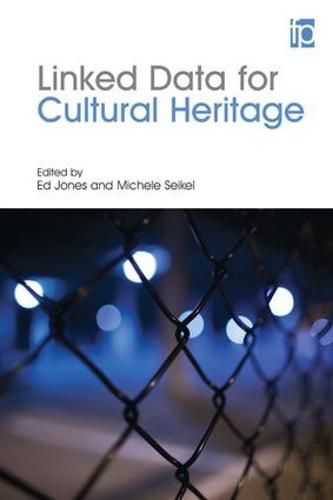Readings Newsletter
Become a Readings Member to make your shopping experience even easier.
Sign in or sign up for free!
You’re not far away from qualifying for FREE standard shipping within Australia
You’ve qualified for FREE standard shipping within Australia
The cart is loading…






Linked data is now essential for sharing collections on the open web. Linked Data for Cultural Heritage gathers a stellar list of contributors to help readers understand linked data concepts by examining practice and projects based in libraries, archives, and museums. Linked open data remains very much a work in progress, and much of the progress has taken place within the domain of the cultural heritage institutions: libraries, archives, and museums. There is no question that the structure of linked data, and the machine inferencing it supports, shows great promise for discoverability. What will be the ‘killer app’ that breaks linked open data out to the wider world and accelerates its uptake? Perhaps it will be a project described in this volume. Content covered includes: - a very simple description of linked data, summing up its promises and challenges - a survey of the use of linked data in significant projects across the cultural heritage domain, including Europeana and the Digital Public Library of America (DPLA) - practical discussion of migrating a catalogue from a MARC environment to one of linked data and the possibilities that open up in terms of the broader scholarly community - reviewing and reimagining library thesauri, metadata schemas, and information discovery, to look at how controlled vocabularies integrate library practice with linked data - an examination of the role of authority control, identifiers and vocabularies, including use of the Web Ontology Language (OWL) and the SPARQL query language - Carol Jean Godby describes OCLC’s experiments with Schema.org as the foundation for a model of library resource description expressed as linked data - the development of the Bibliographic Framework Initiative (BIBFRAME) data model and a description of the fundamental differences between MARC and BIBFRAME. This survey of the cultural heritage linked data landscape will be a key resource for metadata practitioners and researchers within all cultural heritage contexts and all students and academics within the information science and digital humanities fields.
$9.00 standard shipping within Australia
FREE standard shipping within Australia for orders over $100.00
Express & International shipping calculated at checkout
Linked data is now essential for sharing collections on the open web. Linked Data for Cultural Heritage gathers a stellar list of contributors to help readers understand linked data concepts by examining practice and projects based in libraries, archives, and museums. Linked open data remains very much a work in progress, and much of the progress has taken place within the domain of the cultural heritage institutions: libraries, archives, and museums. There is no question that the structure of linked data, and the machine inferencing it supports, shows great promise for discoverability. What will be the ‘killer app’ that breaks linked open data out to the wider world and accelerates its uptake? Perhaps it will be a project described in this volume. Content covered includes: - a very simple description of linked data, summing up its promises and challenges - a survey of the use of linked data in significant projects across the cultural heritage domain, including Europeana and the Digital Public Library of America (DPLA) - practical discussion of migrating a catalogue from a MARC environment to one of linked data and the possibilities that open up in terms of the broader scholarly community - reviewing and reimagining library thesauri, metadata schemas, and information discovery, to look at how controlled vocabularies integrate library practice with linked data - an examination of the role of authority control, identifiers and vocabularies, including use of the Web Ontology Language (OWL) and the SPARQL query language - Carol Jean Godby describes OCLC’s experiments with Schema.org as the foundation for a model of library resource description expressed as linked data - the development of the Bibliographic Framework Initiative (BIBFRAME) data model and a description of the fundamental differences between MARC and BIBFRAME. This survey of the cultural heritage linked data landscape will be a key resource for metadata practitioners and researchers within all cultural heritage contexts and all students and academics within the information science and digital humanities fields.